News
The Feast of the Holy Family of Jesus, Mary and Joseph
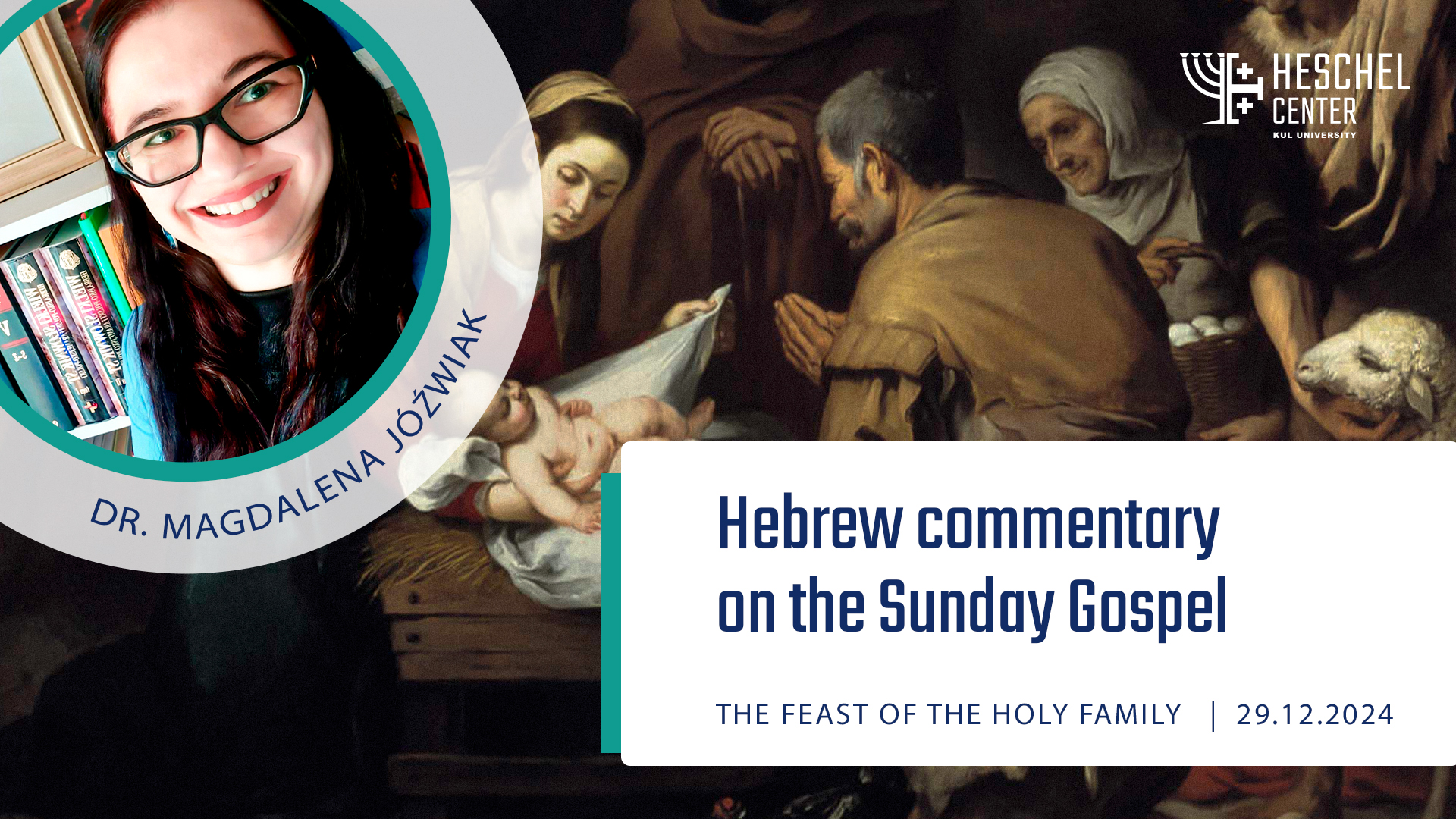
Today's Gospel directs our eyes to the Holy Family: Jesus, Mary, and Joseph, who went to Jerusalem for the feast of Passover. Passover was one of the three great pilgrimage feasts (along with the Feast of Weeks and the Feast of Tabernacles), and was celebrated to commemorate the liberation of the Israelites from Egyptian slavery. According to rabbinic order, men aged 13 were required to make the annual pilgrimage because, in the Jewish mentality of the time, once a boy turned 12, he entered adulthood and was obligated to observe the entire Law.
Hannukah
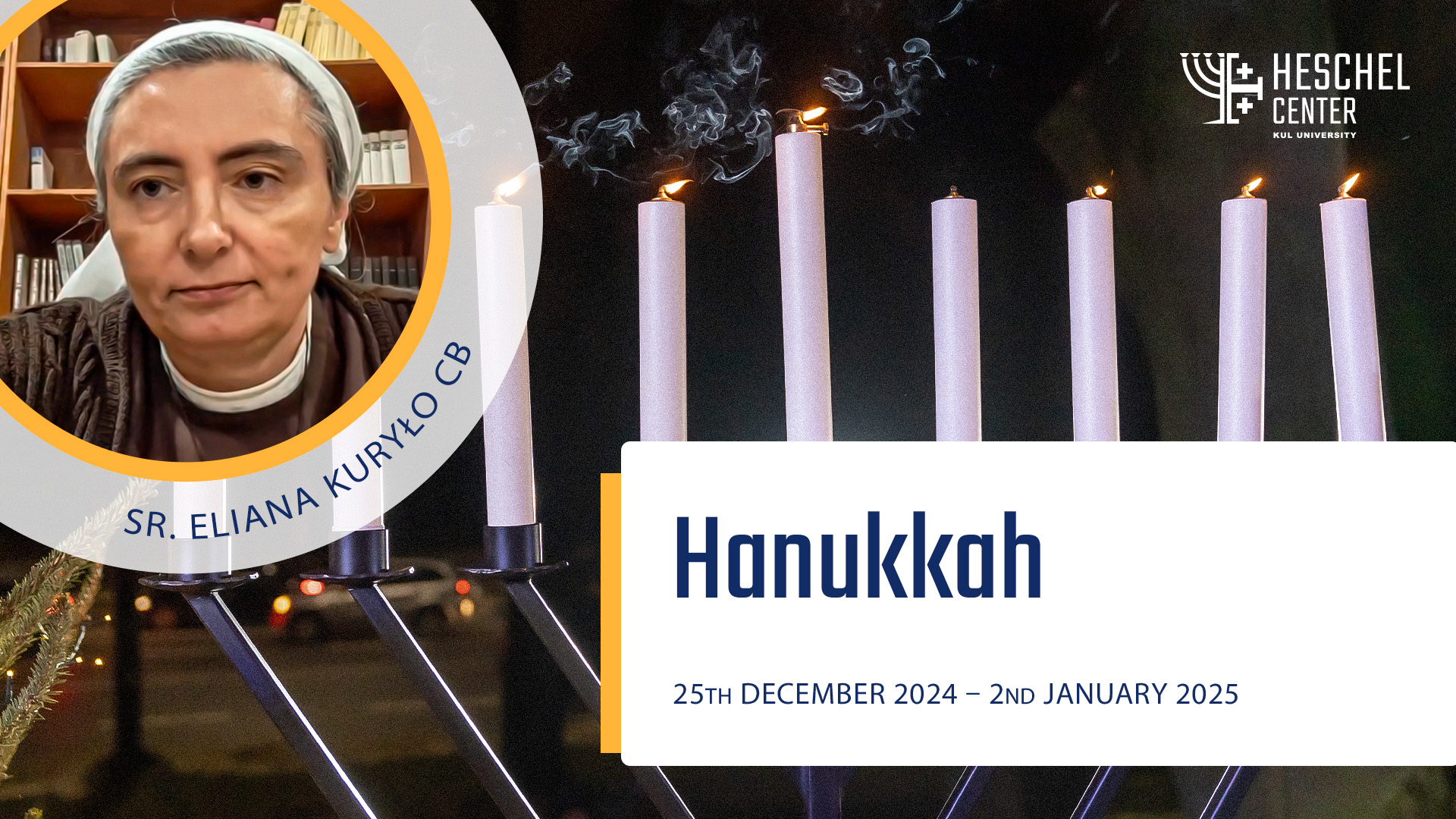
The word Hanukkah means 'dedication' and celebrates one of the greatest miracles in the Jewish history. The festival reminds of a time over 2,000 years ago, when the Jews fought against the Greeks in order to practice their religion in a free way again. The Greeks had banned all Jewish rituals. King Antiochus tried to make Jews bow down in front of a statue that had been put in the Temple of Jerusalem. He also tried to make them pray to Greek gods. The Hasmonean dynasty fought against this foreign political and religious oppression. After gathering a large number of rebels and leading a three-year war, they won. However, the Jerusalem Temple needed to be purified and re-dedicated to God of Israel. Once it had been cleansed it was discovered that there was only enough oil make the central lampstand/ menorah burn for only one day but miraculously it burned for eight days. Eight days was the time needed for making some new and ritually pure oil.
Fourth Sunday of Advent
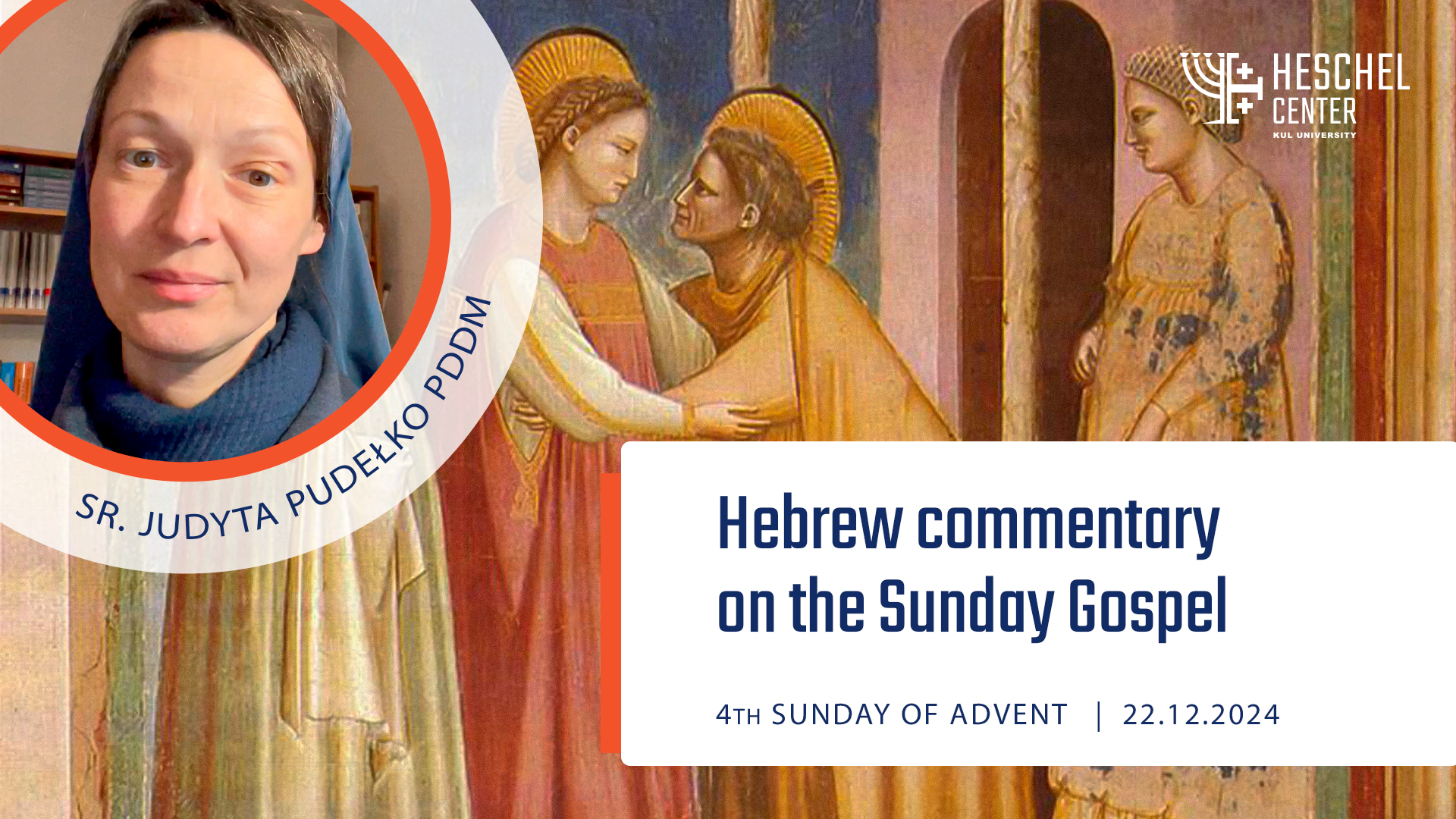
The Gospel of the Fourth Sunday of Advent, Year C, is the evangelist Luke's account of Mary's visit to Elizabeth (Luke 1:39-45). It carries deep theological and existential content. Why does Mary set out to visit Elizabeth? This is what the context of the passage informs us. It is a confirmation of Mary's faith. She believed God, His word, which was announced to her by the angel Gabriel (Luke 1:25-38).
Third Sunday of Advent
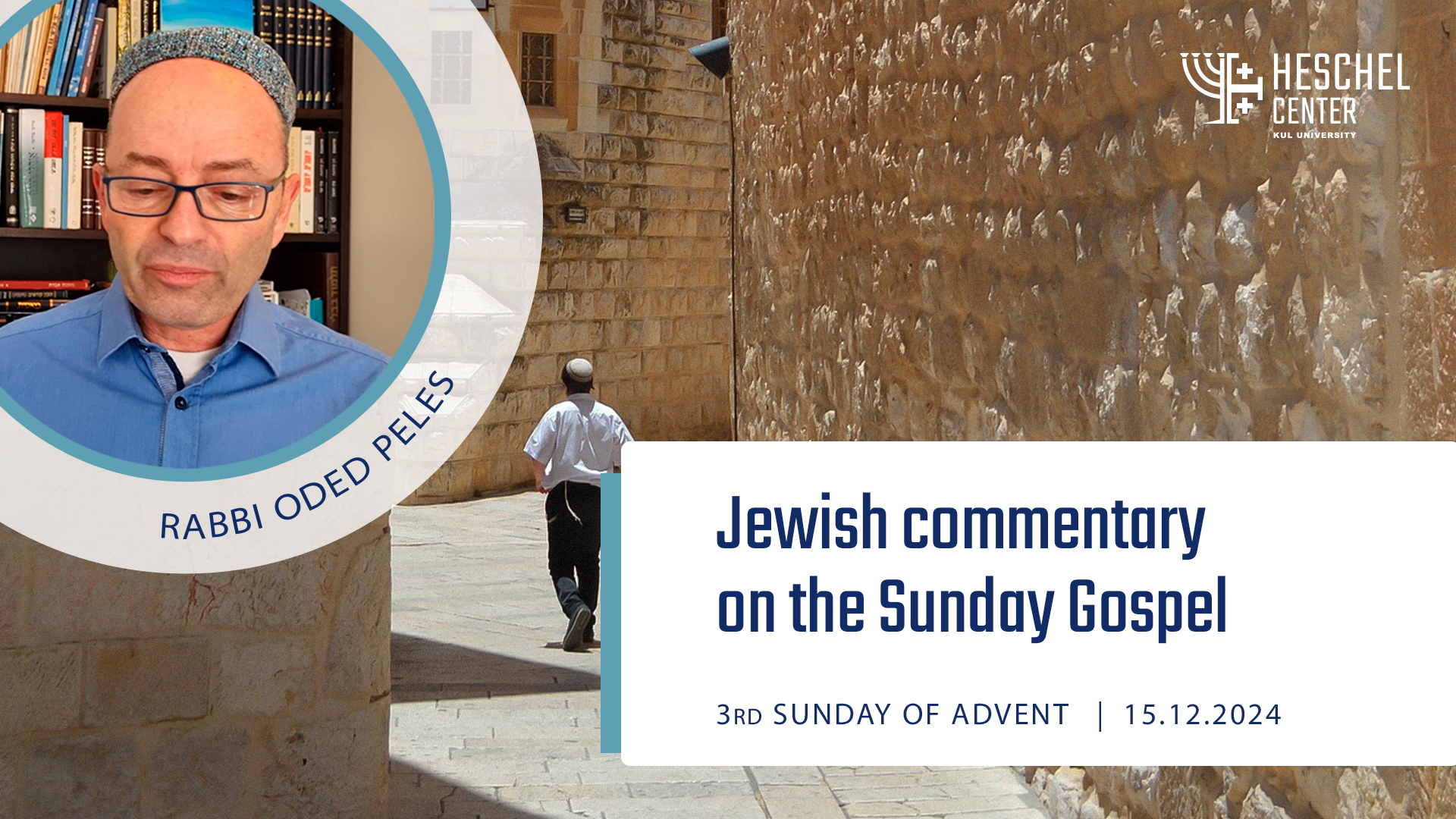
On the 3rd Sunday of Advent in the Gospel according to Luke (3, 10-18), John the Baptist provides profound insights into Jewish social ethics, particularly regarding economic justice and sharing. When the crowd asked him, "What should we do?" John responds with practical teachings that emphasize the core Jewish principles of Tzedakah [charitable giving] and Chesed [loving-kindness], which views sharing not just as an optional charity, but rather as a moral obligation. In this way, the definition of Tzedakah expands to become “righteousness”, the required way of life.
Second Sunday of Advent
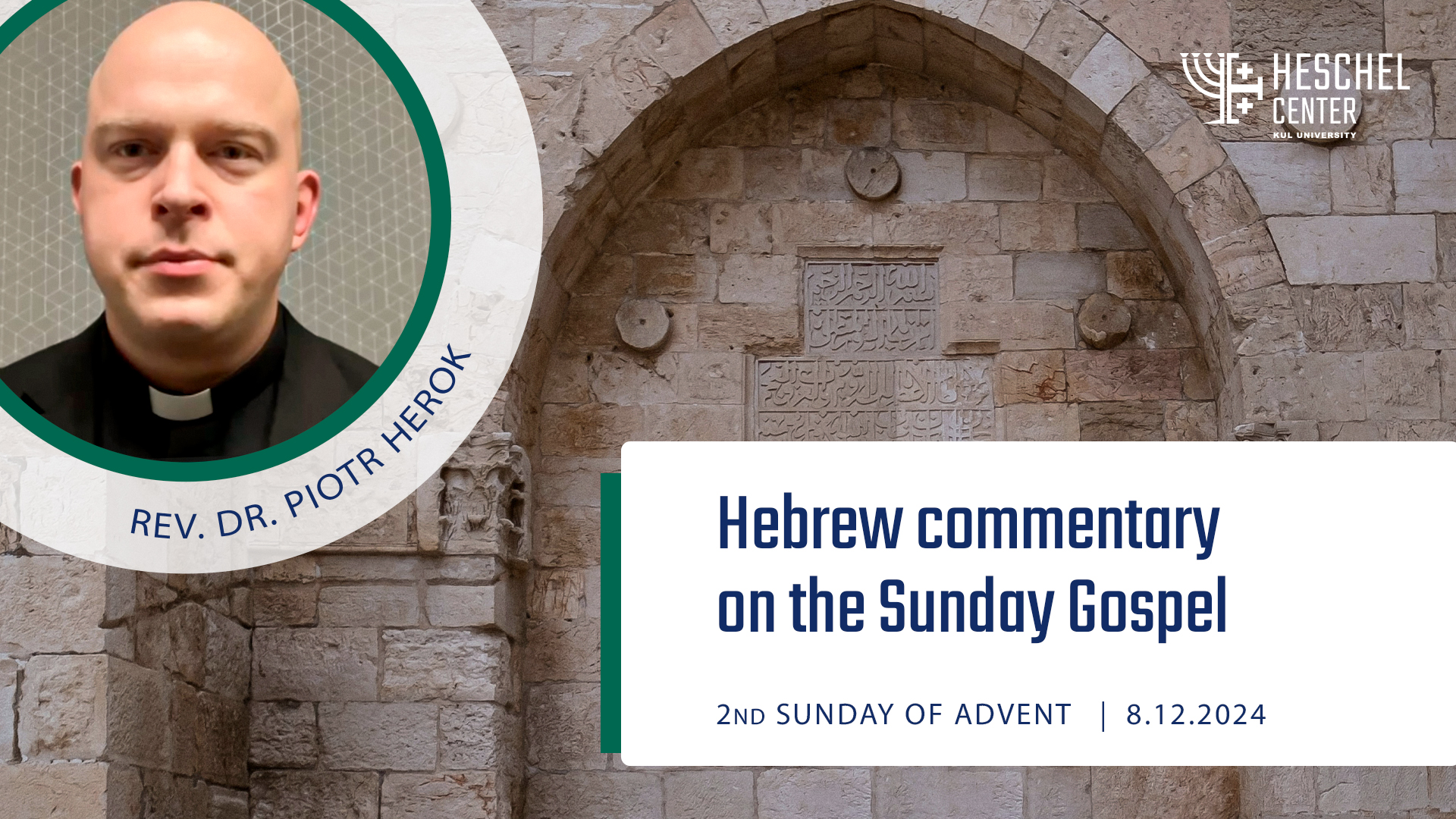
Luke presents today the beginning of the Baptist’s public ministry against the backdrop of universal history and at the same time against the backdrop of a triple calendar. The calendar of the Roman emperors; we hear here about Tiberius, who ruled from 14 to 37 CE. The calendar of the rulers of Palestine, which was part of the Roman province of Syria – Herod Antipas, son of Herod the Great, who was governor of Galilee from 4 BC to 39 AD and Pontius Pilate, who held office in the years 26-36 AD. And finally, the high priestly calendar – Annas and Caiaphas mentioned here – both bore the honorific title of cohen gadol – and held their offices in the years 6-15 and 18-37 AD respectively. Luke therefore informs us today that John began his public ministry between September 27 AD and October 28 AD.
First Sunday of Advent - Jewish Commentary
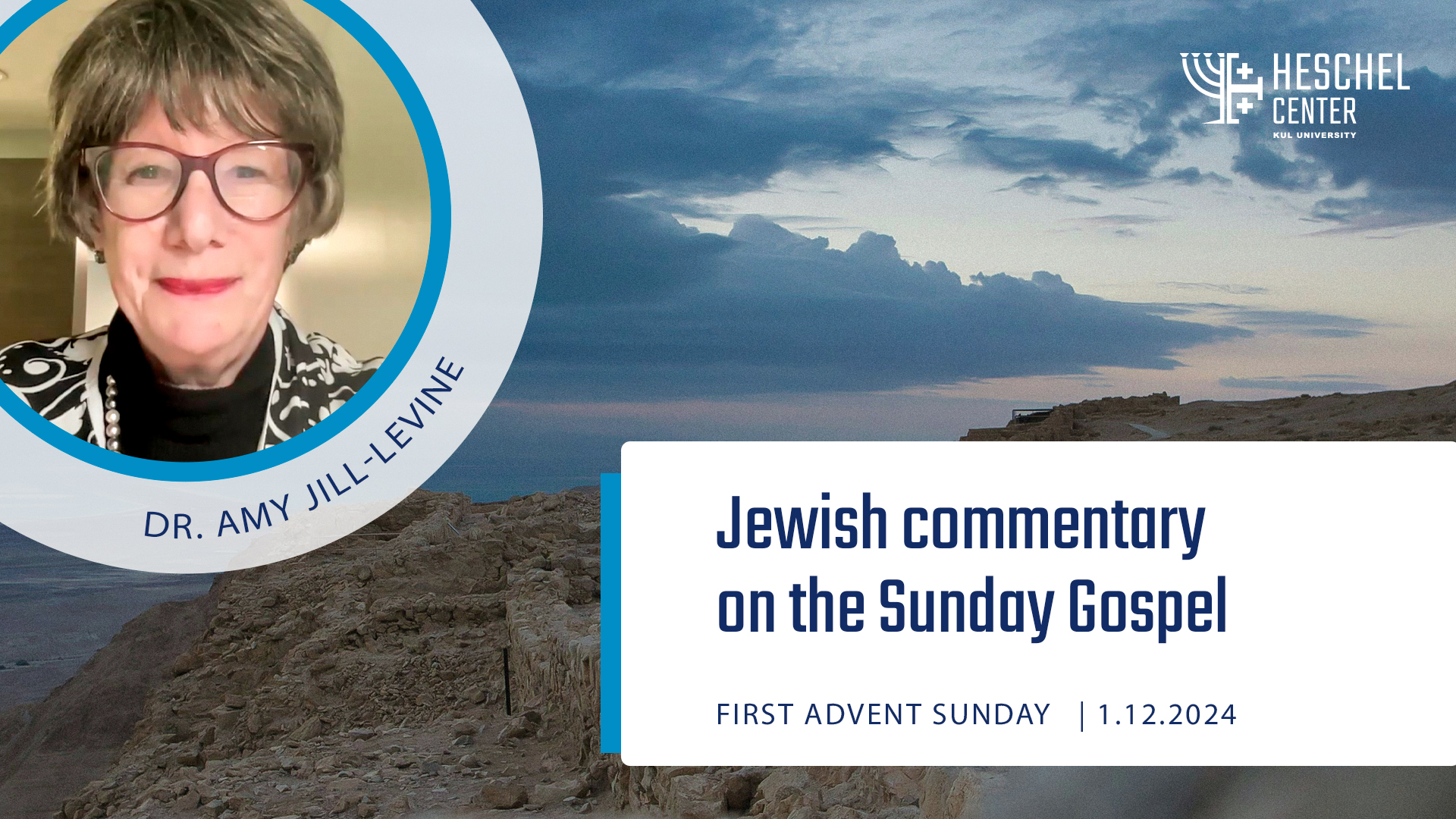
The sad thing is that what will be already had been and is now. We have seen in the past and see today multiple “nations in disarray.” We see today the roaring of the sea and the waves in the hurricanes, typhoons, and floods coming with increasing frequency and doing increasing damage. We see people dying not only of fright, but of bombs and gunfire, of heart disease and cancer. In the midst of suffering – ecological, military, bodily – what do we do? Jesus’s call is that we don’t turn from responsibilities to carousing and drunkenness; this is good advice. On that my mother would also agree. But simply telling us what not to do is insufficient.
Jewish Commentary on the Gospel for 33rd Sunday in Ordinary Time
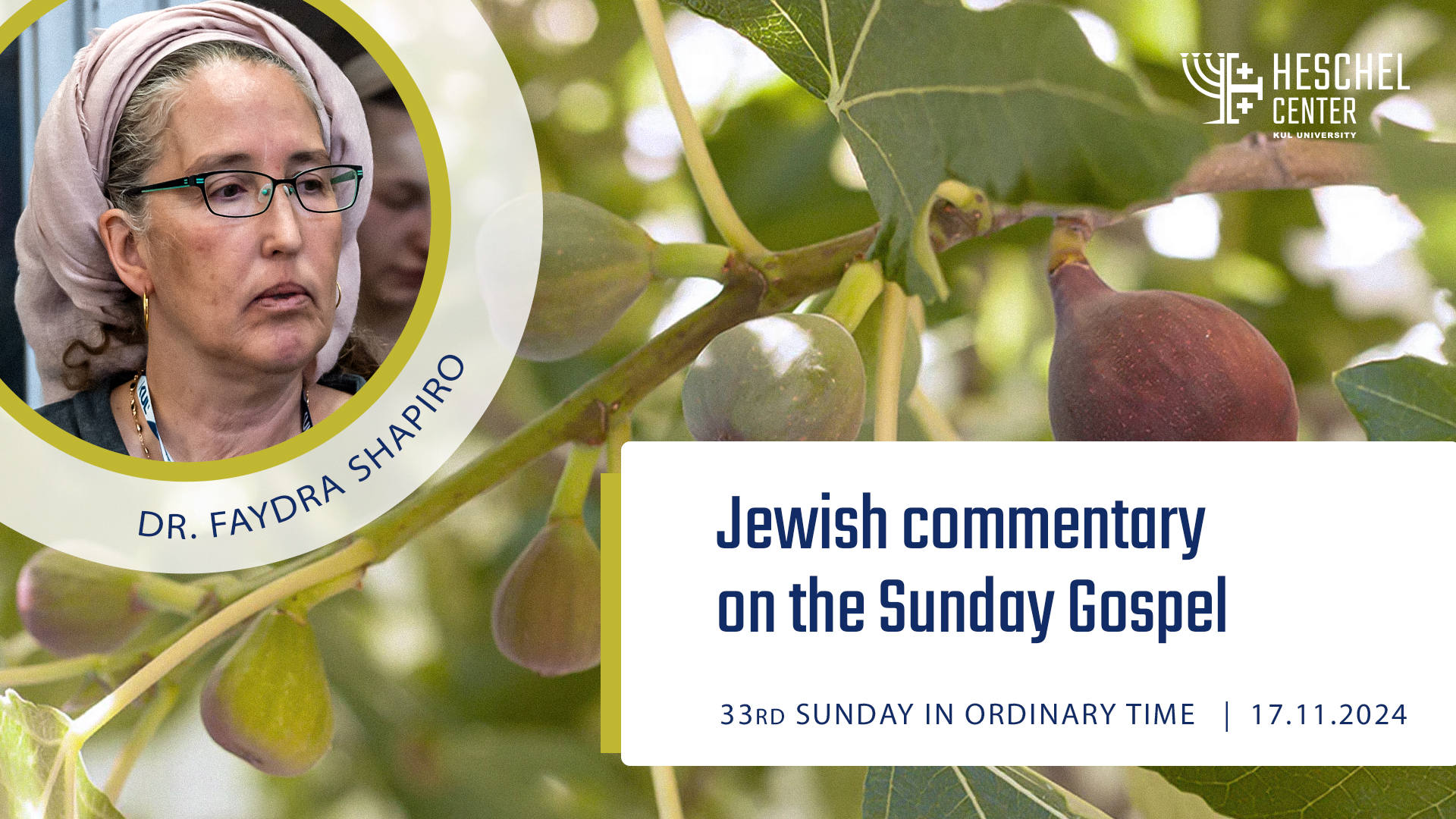 In this Sunday’s Gospel reading we encounter a very rich image, one that occurs in all the synoptics, of the budding fig tree.
In this Sunday’s Gospel reading we encounter a very rich image, one that occurs in all the synoptics, of the budding fig tree.
“From the fig tree learn its lesson: as soon as its branch becomes tender and puts forth its leaves, you know that summer is near.” – Mk 13, 28
Following this kind of mysterious image, the text continues, making it clear that this is somehow connected to the coming End Times:
“So also, when you see these things taking place, you know that he is near, at the very gates. Truly I tell you, this generation will not pass away until all these things have taken place. Heaven and earth will pass away, but my words will not pass away.” – Mk 12, 29-31
So why the fig tree image and its leaves? What does it add?
Hebrew Commentary on the Gospel for the 32nd Ordinary Sunday
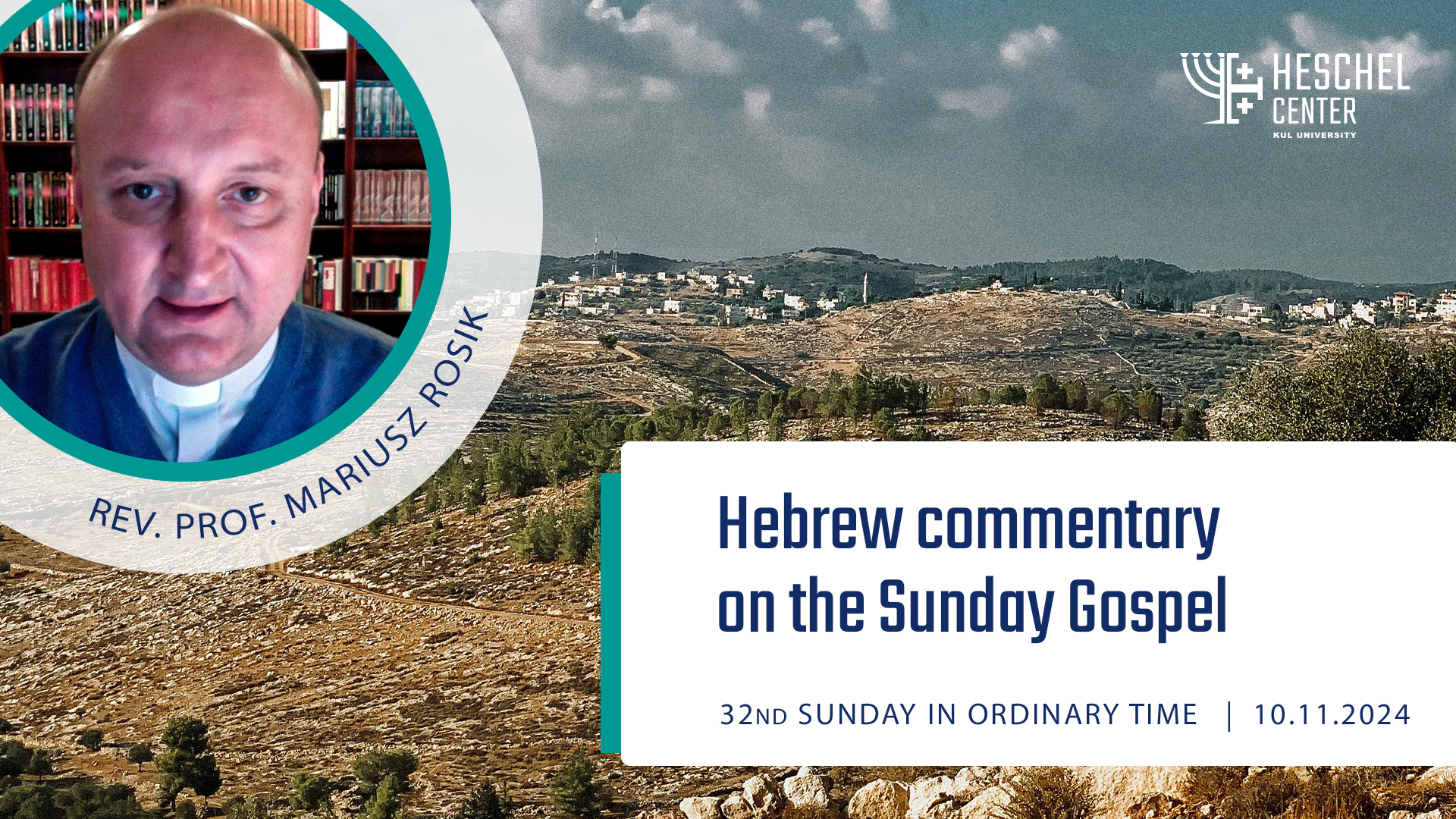
In today's Gospel, Jesus contrasts the attitudes of the scribes and the poor widow. The scribes, known in the literature as scribes or doctors of the Law mainly were Pharisees. Representing the intellectual and spiritual elite, they were engaged in the study and explication of religious questions. They were well-versed in the 613 rules of the Torah and sought to implement them carefully.
Jewish Commentary on the Gospel for 31st Sunday in Ordinary Time
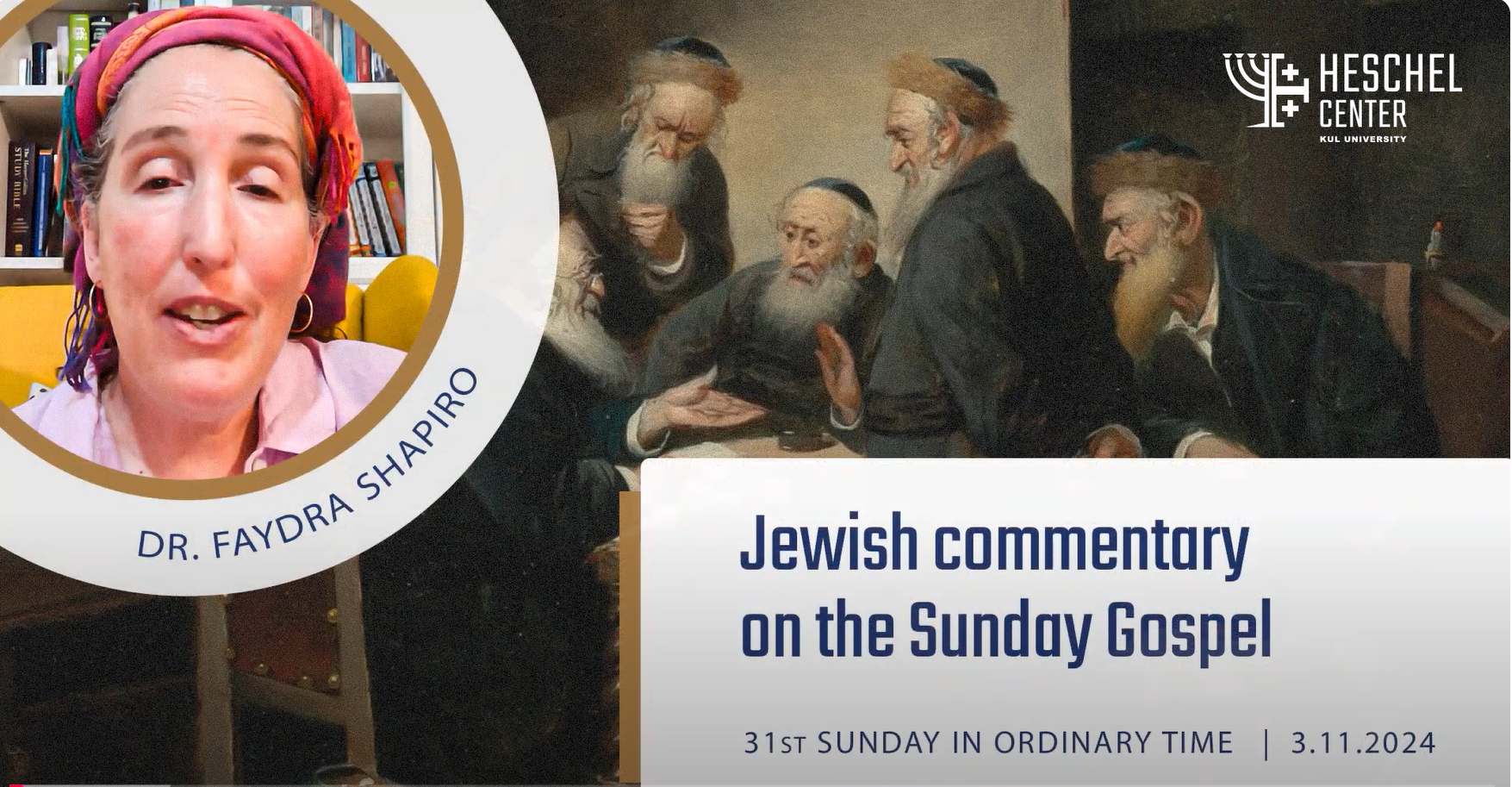
In today’s Gospel both of the commandments that Jesus quotes are straight from the Torah. The first, “And you shall love the Lord your God with all your heart, with all your soul and with all your might” comes from Deuteronomy chapter 6 and the second “You shall love your neighbor as yourself” comes from Leviticus 19. Obviously Jesus as a Jew immersed in Torah would have seen these as foundational and fundamental commandments.
But…as the age-old question goes: what is love?
The Kaddish Prayer.
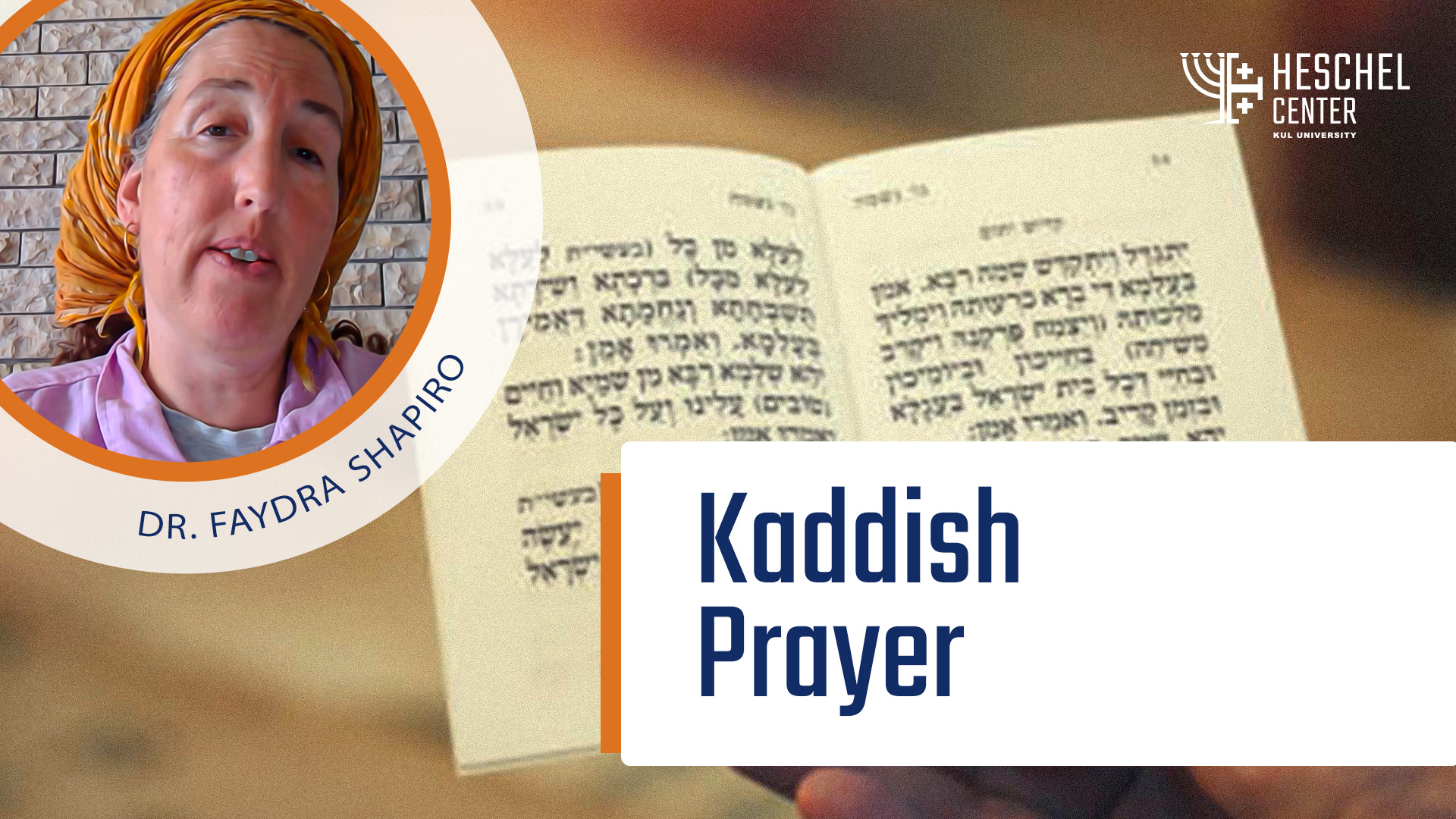
Kaddish is a short, special prayer in Aramaic that has one very single and specific point: the sanctification of God. But while the words of the prayer are very focused on this single theme, the prayer is put to many different liturgical uses. In fact there are five different “kinds” of kaddish, even though the words are almost exactly the same for all of them. So it’s a prayer that is repeated multiple times in the course of a single prayer service. One of its best-known roles is that the kaddish prayer is recited by first degree relatives of someone who has recently passed away.













